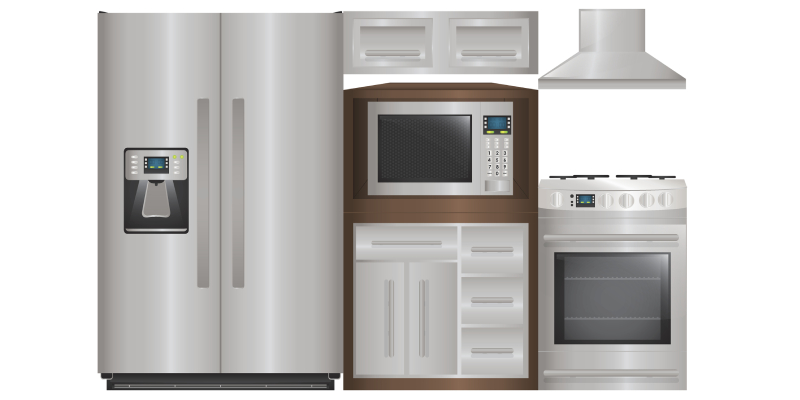Have you ever noticed that certain appliances in your home cause the lights to dim when you turn them on? It’s a sign that you have power-hungry devices overloading your home’s electrical system. The solution is to supply them with dedicated circuits, which will help avoid tripped breakers and other electrical issues.

For your safety, we highly recommend checking whether these five common home appliances need this special electrical consideration in your home:
- HVAC Systems. Air conditioners and heating systems require a significant power draw to run their compressors and fans. Providing them with dedicated circuits prevents them from taxing the rest of your home’s electrical system, besides avoiding shorts that can lead to unit failure.
- Refrigerators. As your refrigerator cycles on and off every day to preserve your food, it puts significant demand on your home’s wiring. A dedicated circuit will ensure it operates efficiently without competing for power with other appliances in your home.
- Laundry Machines. Washers and dryers run on high-powered heating elements and motors, meaning they also warrant dedicated circuits to keep the lights from dimming.
- Electric Ovens, Ranges, or Stoves. With high voltage requirements, electric ovens, cooktops, and ranges need dedicated circuits capable of meeting their energy needs. This prevents hazardous voltage drops in your home.
- Microwaves. While not as power-hungry as the appliances above, microwaves still require a good amount of electricity to generate their interior radiation. Therefore, a dedicated circuit can help prevent the nuisance tripping whenever you’re warming up a meal using the microwave.
Do you have any of these appliances at home but are unsure whether they have/need dedicated circuits? Contact us today at Buckingham Electric Inc. to schedule a professional consultation. We’ll thoroughly assess your current wiring and give you the best recommendations on whether to upgrade it.
